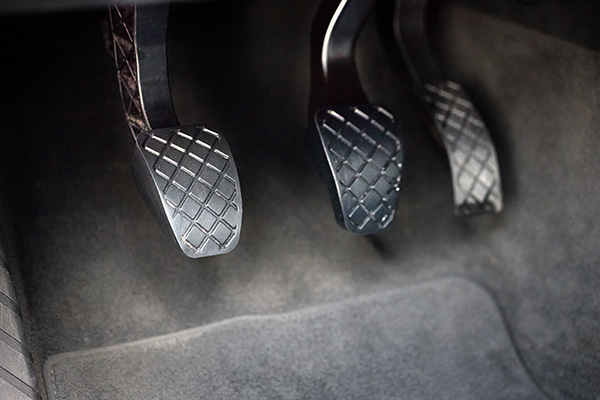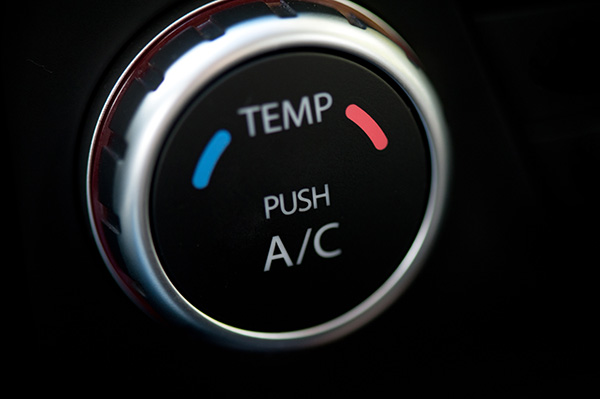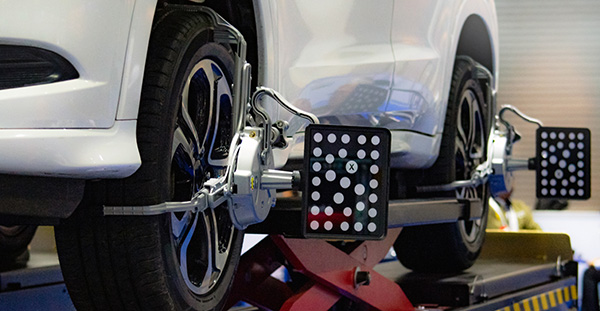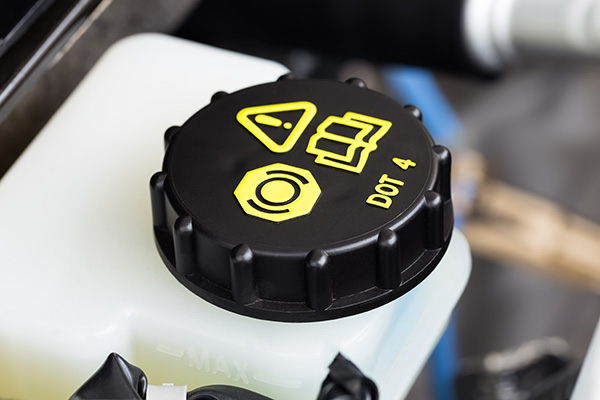Posted on 12/19/2025

A clutch pedal that suddenly stays on the floor feels scary, and it can leave you wondering if the car will move again or if you are about to be stranded. Sometimes you can hook the pedal with your toe and pull it back up, other times it refuses to come back at all. When that happens, you are usually dealing with a hydraulic problem, not the clutch disc itself, and it is something that should be checked sooner rather than later. What It Feels Like When the Clutch Pedal Stays Down Many drivers first notice the pedal getting “mushy” before it finally sticks. The pedal may feel softer than usual, sink lower with less effort, or take longer to return after you shift. Gear changes might start to feel vague or slightly crunchy, especially going into first or reverse. You may also see the pedal stay on the floor after a hard stop or a quick downshift. Once the pedal stays fully down, shifting becomes difficult or impossible. You might hear grinding when trying ... read more
Posted on 11/28/2025

Daily driving a Jeep in New Orleans means heat, humidity, potholes, and the occasional flooded street. Add weekends on the levee trails or a Gulf Coast trip, and the setup needs to be calm on I-10 yet tough on dirt. Here is how we build reliable Jeeps that track straight, run cool, and feel solid every day, without turning maintenance into a second job. Start With Tires And Diameter Before Anything Else Tires decide how your Jeep rides, steers, and stops. We match the diameter to how you actually drive. True 33s work well for mixed city and weekend use, while 35s need thoughtful support parts. Load range matters: C or D range tires ride better on broken pavement than stiff E range rubber. In our climate, an all-terrain with good wet grip beats an aggressive mud tread for daily safety. Proper balancing and a rotation plan keep noise down and tread even. Lift Height That Protects Geometry, Not Just Looks More height changes caster, toe, brake line ... read more
Posted on 10/31/2025

You’re heading out on a chilly morning, you crank up the heat in your car, and all you get is cold air blowing from the vents. It’s frustrating and uncomfortable, but it can also indicate a more serious issue with your vehicle’s heating system. If your car heater isn’t working properly, it usually indicates problems with the cooling system, HVAC components, or low coolant levels. Here’s a closer look at why your heater might be blowing cold air and what you can do to fix it before the temperatures drop further. Low Coolant Level Coolant isn’t just for keeping your engine from overheating, but also supplies heat to the cabin. Your car’s heater uses hot coolant from the engine to warm up the air that flows through your vents. If the coolant level is too low, the system can’t produce enough warm air, and you’ll feel it inside the car. Low coolant is often the result of a leak somewhere in the system. If you also no ... read more
Posted on 9/26/2025

Your vehicle’s alignment affects how straight you drive and impacts your safety, fuel efficiency, and tire lifespan. Wheel alignment ensures all four wheels point in the correct direction and sit at the proper angles. When alignment is off, your vehicle starts giving you clear signals. Ignoring those signs can lead to uneven tire wear, poor handling, and even long-term suspension damage. If you notice any of the issues below, it might be time to schedule a professional alignment. 1. Your Car Pulls to One Side One of the most obvious signs of poor alignment is when your vehicle drifts left or right, even when you're trying to drive straight. This happens when the wheels are no longer aligned evenly and begin to fight against each other. If you constantly need to correct your steering to keep the car centered, it’s a strong indicator that your alignment is o ... read more
Posted on 8/28/2025

When it comes to your car’s safety, few systems are as important as the brakes. The ability to stop quickly can mean the difference between a near miss and an accident. At the heart of this system is brake fluid, which works behind the scenes every time you step on the pedal. This special hydraulic fluid transfers the force from your foot into pressure that clamps the brake pads against the rotors, slowing your vehicle. If the fluid is in poor condition, even brand-new brake pads and rotors can’t perform as they should. The Role of Brake Fluid in Your Vehicle Brake fluid’s job might seem simple, but it’s under constant stress. Every time you brake, the heat generated by friction raises the temperature of the fluid. Quality brake fluid is engineered to withstand high heat without boiling, but it has one vulnerability: it absorbs moisture from the air over time. Because most brake systems are not completely airtight, humidity in the environment ... read more